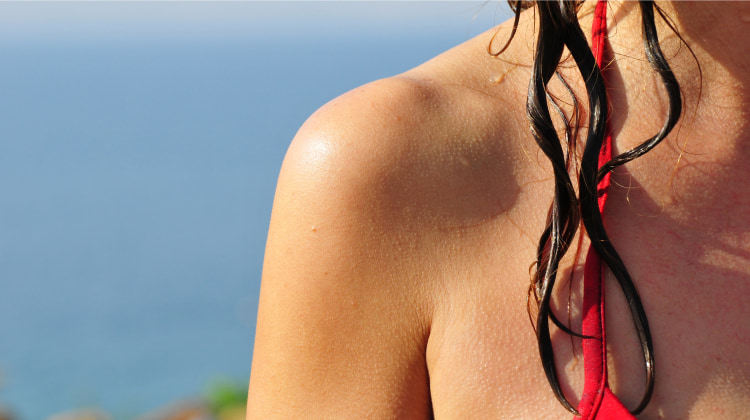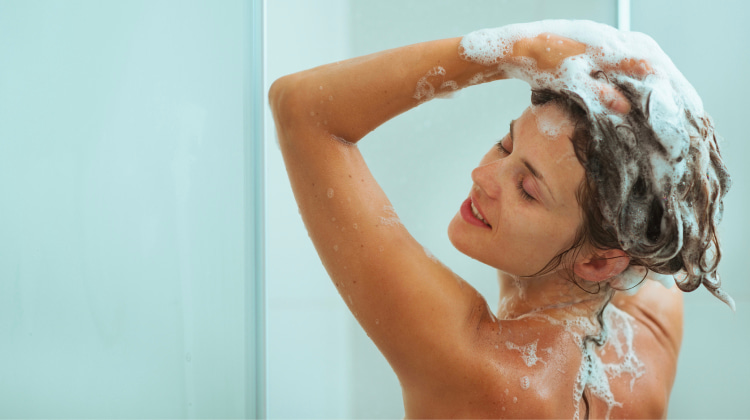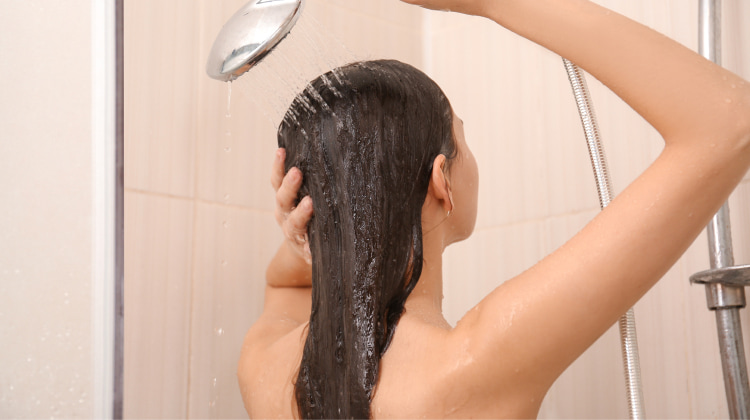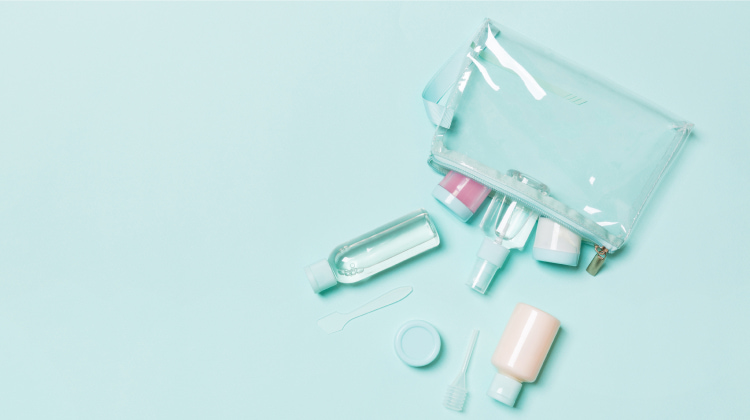
Ever wondered, "How often should I wet my hair?" or "Is it bad to wet my hair everyday?" They’re both very common questions, particularly for those with oily hair or active lifestyles. From my personal experience, finding the right hair care routine can be a bit like Goldilocks – it's all about being ‘just right’. Too much washing can leave your hair dry and brittle, while too little can lead to greasy, lifeless locks. So, what's the sweet spot? And is it different for everyone?
In our journey through hair care wisdom, we'll discuss how often you should wash your hair and the best substitutes for shampoo when you need a break. So, are you ready to give your hair the care it deserves and find the perfect balance? Let's go!
Is It Bad to Wash Your Hair Everyday?
So, let's address the question that's been on everyone's mind: is wetting your hair everyday a bad idea? Yes, washing your hair every day can be harmful, but the effects vary depending on your hair type and individual needs.
Why is it bad to wash your hair everyday? The main concern with daily washing is that it may strip your hair of its natural oils, leading to dryness, irritation, and damage.
So, is it bad to wash your hair everyday for guys, too? Well, men and women may have different hair care needs due to hormonal differences and hair textures but the same principles apply. It’s essential to listen to your hair and adjust your routine accordingly, regardless of gender.
Let’s delve deeper into what might happen if you wet your hair every day:
Stripping Natural Oils

When you shampoo your hair too often, you risk removing the essential oils that your scalp naturally produces. These oils, called sebum, play a vital role in keeping your hair moisturized and protected.
Washing your hair daily can disrupt this natural balance, leaving your hair dry, brittle, and more susceptible to breakage. In some cases, over-cleansing can even lead to an overproduction of sebum, causing your scalp to become oilier than before.
Irritation
Washing your hair frequently can have a negative impact on your scalp, particularly for those with sensitive skin or conditions like eczema or psoriasis. The harsh chemicals found in some shampoos(1) can strip away the scalp's protective barrier, leading to redness, itching, and inflammation.
It's crucial to listen to your body and adjust your hair care routine accordingly, giving your scalp the chance to recover and maintain its natural balance.
Fading Hair Color
For individuals who color their hair, frequent washing can contribute to premature fading of the color. Most hair dyes contain molecules that penetrate the hair shaft, creating a lasting color.
However, each time you shampoo, you're essentially opening the hair cuticle, allowing some of these color molecules to escape. Reducing the frequency of hair washing can help preserve your hair color for a longer period, saving you time and money on touch-ups.
How Often Should You Wash Your Hair?

So, we've established that washing your hair every day might not be ideal. But then, how often should you wash your hair? The answer varies depending on your hair type, scalp condition, and lifestyle. Let's explore some general guidelines to help you find the perfect balance for your hair care routine.
Normal Hair
If you have normal hair that's neither too oily nor too dry, washing your hair every two to three days should work well. This allows your hair to maintain its natural oils, keeping it healthy and shiny.
Oily Hair
Is it bad to wash your hair everyday if you have oily hair? It might be tempting to wash it every day to prevent excess oil buildup. However, overwashing can actually cause your scalp to produce more oil to compensate for the loss, creating a vicious cycle.
Instead, try washing your hair every other day, and consider using a gentle, sulfate-free shampoo to avoid stripping your hair of its natural moisture. If your hair gets greasy between washes, you can use a dry shampoo to help absorb excess oil.
Dry Hair
If you have dry hair or a dry scalp, washing less frequently is usually best. Aim for once or twice a week to help retain your hair's natural oils and prevent further dryness. You can also try using a nourishing hair mask or a natural oil treatment to keep your hair moisturized between washes.
Curly Hair
Curly hair tends to be drier than other hair types, so washing it less frequently is usually advised. Once or twice a week should be sufficient. To keep your curls moisturized and well-defined, consider using a sulfate-free shampoo and incorporating a leave-in conditioner. You can also try the "curly girl method" which involves using a silicone-free conditioner to cleanse your hair instead of shampoo.
Active Lifestyle
If you're an athlete or someone who exercises frequently, you might feel the need to wash your hair daily. Instead, try rinsing your hair with water to remove sweat and using a gentle, sulfate-free shampoo every other day. You can also consider co-washing, which means washing your hair with a conditioner instead of shampoo, to help maintain moisture while removing sweat and dirt.
5 Best Substitutes for Shampoo
Looking for alternatives to conventional shampoo? Whether you want to reduce chemicals in your hair care routine or give your locks a break from frequent washing, there are some fantastic substitutes for shampoo you can try. Here are a few options that can help you maintain clean, healthy hair without stripping it of its natural oils:
Co-Washing
Co-washing(2), or conditioner washing, involves using a lightweight, silicone-free conditioner to cleanse your hair instead of shampoo. This method is particularly beneficial for curly and dry hair types, as it helps maintain moisture while gently removing dirt and buildup.
No-Poo Method

The "no-poo" method(3) is another popular alternative to using shampoo. Instead of using traditional shampoo, you can mix equal parts of baking soda and water to form a paste. Massage the paste into your scalp and hair, then rinse thoroughly. Follow up with a diluted apple cider vinegar rinse to help balance your scalp's pH and add shine to your hair.
Water-Only Washing

For some people, simply rinsing their hair with water is enough to keep it clean and healthy. Water-only washing involves massaging your scalp under running water to dislodge dirt and excess oil. This method may not be suitable for everyone, but it can be a good option for those with sensitive scalps or minimal product buildup.
Cleansing Creams

Cleansing creams, or "low-poo" products, are gentle hair cleansers that contain fewer harsh chemicals than traditional shampoos. They are designed to cleanse the hair without stripping it of its natural oils, making them a great option for those looking to maintain moisture and avoid overwashing.
DIY Shampoo Alternatives
.jpg)
If you prefer a more natural approach, you can create your own shampoo alternatives using ingredients like honey, aloe vera, or egg yolks. These natural ingredients can help cleanse your hair while providing nourishment and hydration. For example, you can mix one tablespoon of honey with three tablespoons of water to create a gentle honey shampoo.
So, Should You Wet Your Hair Everyday?
Ultimately, deciding whether it is bad to wet your hair every day is a personal choice that depends on your hair type and individual needs. If you have oily hair, you may find that wetting your hair daily helps to manage oiliness without over-washing. However, those with curly or dry hair should consider avoiding wetting their hair every day, as it may lead to frizz and damage.
The key takeaway is that there's no one-size-fits-all answer to the question of whether it is bad to get your hair wet every day. It's essential to pay attention to your hair's unique needs and adapt your hair care routine accordingly. By experimenting with washing frequency and using gentle alternatives to traditional shampoos, you can find the best approach for your hair type, ensuring your locks stay healthy and vibrant.
Frequently Asked Questions
Is it bad to wash your hair everyday with water?
Not necessarily, but it depends on your hair type. For oily hair, it might help manage oiliness; for curly or dry hair, it may lead to frizz and damage.
Is it bad to wet curly hair everyday?
Yes, wetting curly hair daily can cause frizz, loss of definition, and damage, as it is more prone to breakage.
Is it okay to wash your hair everyday with conditioner?
Yes, using a conditioner daily, especially a lightweight one, can provide hydration without stripping away essential oils like shampoo.
Is it bad to wash your hair everyday after working out?
It's not ideal; try using dry shampoo or rinsing with water to remove sweat without over-washing.
Is it bad to wet your hair without shampoo everyday?
No, wetting hair without shampoo can be a gentle way to refresh and restyle your locks without stripping natural oils.
Is it bad to wet your hair twice a day?
It depends on your hair type, but excessive wetting can potentially cause damage, especially for dry or curly hair.
Is it ok to wash my baby's hair everyday?
No, washing a baby's hair daily can remove natural oils and cause scalp dryness. Aim for two to three times per week.
References
1. Rathi, S. and D′Souza, P. (2015). Shampoo and conditioners: What a dermatologist should know? Indian Journal of Dermatology, {online} 60(3), p.248. doi:https://doi.org/10.4103/0019-5154.156355.
2. Gavazzoni Dias, M. (2018). Pro and Contra of Cleansing Conditioners. Skin Appendage Disorders, {online} 5(3), pp.131–134. doi:https://doi.org/10.1159/000493588.
3. Cline (2018). No sulfates, no parabens, and the ‘no-poo’ method: a new patient perspective on common shampoo ingredients. Cutis, {online} 101(1). Available at: https://pubmed.ncbi.nlm.nih.gov/29529111/.

.jpg)
.jpg)
.jpg)
.jpg)
.jpg)
.jpg)
.jpg)
.jpg)
.jpg)
.jpg)